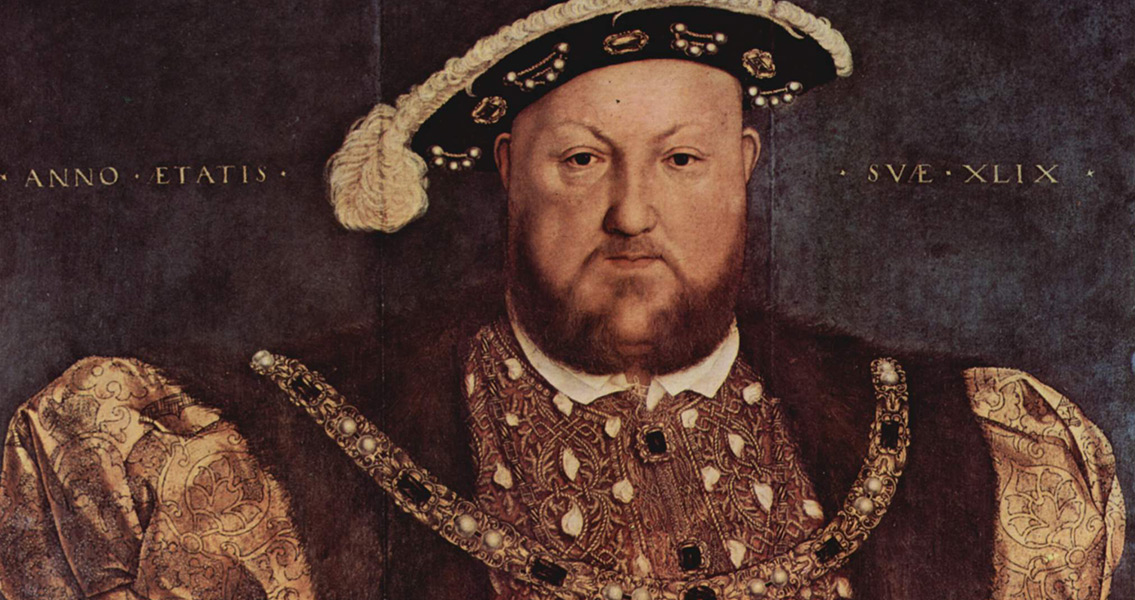<![CDATA[His erratic behavior, including the execution of two (of six) wives, has made Henry VIII one of the most provocative figures in the history of Europe. Now, a new study offers an explanation of why Henry VIII behaved as he did – he was suffering from brain damage resulting from a jousting injury. In a recent interview Dr. Salardini, co-director and behavioral neurologist with the Yale Memory Clinic told History Extra, “I thought Henry was a man with personality disorder, possibly narcissistic with sociopathic tendencies who had some form of mood disorder later on his life and took it out on his subjects. That is not what I ended up finding.” Researchers took a neurological approach (as opposed to historical) to gather and analyze data about the monarch, with the intention of exploring the various diseases Henry could have suffered and their probability. What they found was that most of his symptoms were localized to either the neural pathways (the frontosubcortical circuitry) which affect a person’s memory as well as their behavioral control and organization, or the pituitary gland which controls hormones. This approach produced a pathologically and anatomically medical timeline consistent with chronic concussion and thus to the study’s conclusion. In the study, published by Yale Memory Clinic, researchers dismiss numerous previous theories for the change in Henry’s behavior beginning in 1536, including hypothyroidism, diabetes, and psychosis, as being unable to account for all of his symptoms. They also discuss three major head injuries Henry suffered during his lifetime. The first occurring in March 1524 when he was knocked off his horse when a jousting lance went through his open visor. Regarding Henry’s memory problems, the study refers to an episode in July 1536 when tuberculosis killed his son and likely heir Henry FitzRoy. The burial was conducted in near secret (at his instruction), yet only a few days later Henry appeared to have forgotten his own role in the funeral and even accused his father-in-law, the Duke of Norfolk, of behaving inappropriately towards his son. Another episode indicative of his memory problems occurred in 1546 when the King ordered Catherine Parr to the Tower of London after she argued with Stephen Gardineer, a bishop and statesman, over a religious tradition. The next day Henry consoled his distraught wife and seemed to forget the incident, and when soldiers arrived to take her, he couldn’t remember the orders he had given the previous night and became enraged when he was reminded. When considering Henry’s behavior, the researchers found that his sudden mood swings were a source of constant anxiety for the people in his court, and his unpredictability, especially his anger for unknown reasons, was often noted. He was also known to suffer from periods of depression and self-pity. The possibility that Henry was impotent originated with his second wife Anne Boleyn. It’s been written that Anne and her brother ridiculed the King for this reason and that Anne also shared with her sister that in the bedroom Henry lacked both skill and vigor. The study also refers to Henry’s inability to consummate his marriage to Anne of Cleves in 1540. Dr Salardini told History Extra, “Impotence and weight gain also fit with a growth hormone and sex hormone deficiency which is a known, but less common, manifestation of traumatic brain injury.” When asked by History Extra how a brain injury like Henry VIII’s would be treated today he explained, “The best treatment for traumatic brain injury is prevention, so wearing helmets was as important then as it is now. It was advisable for the king, who seemed particularly accident-prone, to choose a more gentle sport." ]]>
Henry VIII – Unseated and Unstable Due to Jousting Injury
